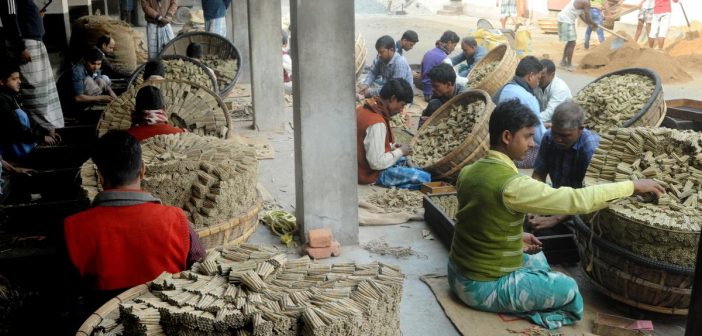Over recent years, North 24 Parganas in West Bengal has surged as a major bidi manufacturing center, challenging the dominance of traditional hubs like Madhya Pradesh, Maharashtra, and Odisha. This growth is fueled by an intricate network of supply, affordable labor, and the region’s strong historical ties to the bidi industry.
The bidi industry in India, estimated to employ over 3.4 million workers full-time, operates predominantly within rural areas where labor costs are low, often involving women and children due to the precision needed in rolling bidis. North 24 Parganas alone employs over 200,000 workers in this sector, contributing significantly to West Bengal’s production which rivals states with traditionally higher output. Nationally, the bidi sector is a significant contributor to the unorganized economy, with around 750 billion to 1.2 trillion bidis produced annually. This production meets the demand of approximately 72 million Indian bidi smokers. In terms of employment, West Bengal stands out as one of the largest employers, with workers facing low wages yet providing essential livelihood for many families.
Key to the growth in 24 Parganas has been the region’s access to tendu leaves, sourced from nearby areas in West Bengal and neighboring states. These leaves are essential for bidi production, with tendu harvesting employing about 7.5 million seasonal workers across India for collection. In North 24 Parganas, laborers also benefit from the local supply chain, where leaves are supplied directly to households for rolling. Women primarily dominate the labor force due to the skill and patience required, though the pay remains minimal—only about Rs 180 per 1,000 bidis rolled. Often, they incur extra costs due to discrepancies in the leaf supply and purchase of additional materials.
Furthermore, the bidi manufacturing ecosystem in North 24 Parganas includes middlemen and distributors, who provide tobacco and tendu leaves to local roller families. Once rolled, bidis undergo a drying process before quality checks and packaging, all of which support a broader supply chain network. Despite the unregulated and low-wage nature of this industry, North 24 Parganas’ increased production aligns with West Bengal’s favorable policies, including higher prices for tendu leaf bundles compared to the national average, which has somewhat improved earnings for tendu leaf collectors.
While bidi production is economically beneficial for many in North 24 Parganas, it poses significant health risks to workers and consumers alike. With minimal taxation and regulatory oversight, the bidi industry continues to thrive despite health concerns. However, this robust industry presents a vital source of income, driving North 24 Parganas into the spotlight as one of India’s most crucial bidi production hubs, a position that may continue to strengthen if demand and local support remain steady.






